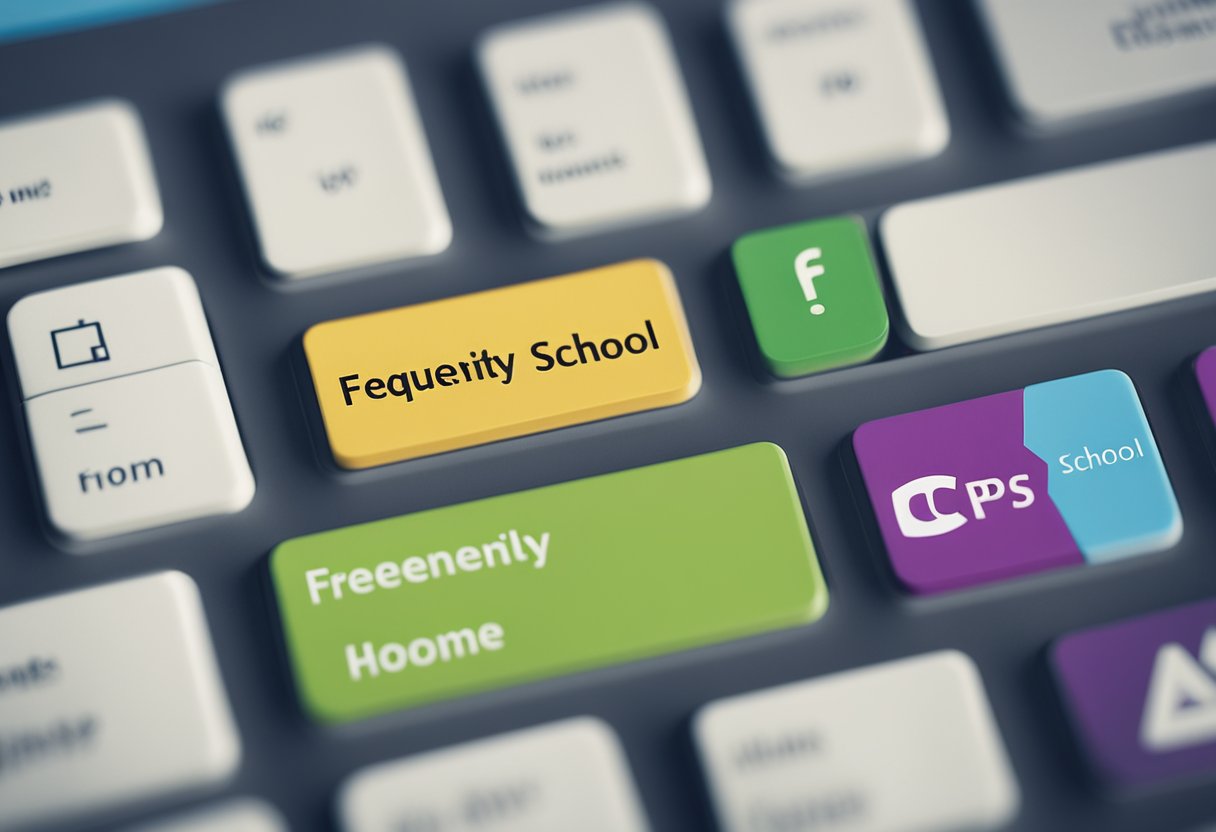If you’re considering homeschooling your child in Chicago, you may be wondering about the policies and procedures you’ll need to follow. Chicago Public Schools (CPS) offers some guidance on homeschooling, including how to set up a homeschool, resources for parents, and how to monitor your child’s progress. In this article, we’ll explore what you need to know about CPS homeschooling and how to get started.

Understanding CPS and Homeschooling
First, it’s important to understand what homeschooling is and how it works in Chicago. Homeschooling is an alternative to public or private school, where parents take on the responsibility of educating their children at home. In Chicago, homeschooling is legal and parents are required to register their homeschool with CPS. Homeschooling families are also required to follow certain guidelines and regulations, such as keeping attendance records and providing a curriculum that meets state standards.
Setting Up a Homeschool
Once you’ve decided to homeschool your child, there are a few steps you’ll need to take to set up your homeschool. This may include creating a homeschool plan, choosing a curriculum, and setting up a schedule for your child’s education. CPS provides resources for parents who are new to homeschooling, including sample homeschool plans and information on how to choose a curriculum that meets state standards. It’s also important to consider the resources and support systems available to homeschooling families, such as homeschool co-ops and support groups.
Key Takeaways
- Homeschooling is legal in Chicago and parents are required to register their homeschool with CPS.
- Setting up a homeschool involves creating a homeschool plan, choosing a curriculum, and setting up a schedule for your child’s education.
- Resources and support systems are available to homeschooling families, such as homeschool co-ops and support groups.
Understanding CPS and Homeschooling
https://www.youtube.com/watch?v=BEL1mp7BuOM&embed=true
If you are considering homeschooling your child, it is important to understand the legal framework of homeschooling in Illinois and the role of Child Protective Services (CPS) in ensuring the safety and well-being of children.
Legal Framework of Homeschooling in Illinois
According to the Illinois School Code (105 ILCS 5/26-1), parents or legal guardians have the right to educate their children at home if instruction is given in the English language. Homeschooling is an option for families who wish to provide their children with education at home or in places other than school.
Parents who choose to homeschool their children are required to submit a notice of intent to homeschool to their local school district. The notice must include the name and birthdate of the child, the name and address of the parent or legal guardian, and the dates of the school term. Parents must also provide evidence of their qualifications to teach, such as a high school diploma or equivalent.
Role of Child Protective Services
Child Protective Services (CPS) is responsible for investigating allegations of child abuse or neglect. CPS may become involved in homeschooling situations if there are concerns about educational neglect or if there are allegations of child abuse or neglect.
It is important to note that CPS is not a homeschool enforcement tool. Even school officials agree that CPS should not be used to intimidate or harass homeschooling families [1]. However, if there are legitimate concerns about a child’s safety and well-being, CPS has the authority to investigate and take appropriate action to protect the child.
Parents have the right to educate their children at home, but they also have a responsibility to ensure that their children receive a quality education and are safe and well-cared for. If you are considering homeschooling your child, it is important to understand your parental rights and responsibilities and to comply with the legal requirements for homeschooling in Illinois.
Setting Up a Homeschool
https://www.youtube.com/watch?v=XPM3Ub6X8xs&embed=true
If you have decided to homeschool your child, there are a few things you should consider before getting started. In this section, we will discuss how to choose appropriate materials and curriculum and how to develop effective teaching methods.
Choosing Appropriate Materials and Curriculum
Choosing the right materials and curriculum is crucial to your child’s success in homeschooling. There are many options available, and it can be overwhelming to decide which one is best for your child. Some factors to consider include your child’s learning style, interests, and academic level.
Before purchasing any materials or curriculum, do some research to see what options are available. Look for reviews and recommendations from other homeschooling families, and consider attending homeschooling conferences or workshops to learn more about different options.
Once you have an idea of what materials and curriculum you want to use, make sure to review them thoroughly before making a purchase. Look for materials that are age-appropriate, engaging, and aligned with your child’s academic goals.
Developing Effective Teaching Methods
Effective teaching methods are essential to your child’s success in homeschooling. As a homeschooling parent, you have the freedom to tailor your teaching methods to your child’s individual needs and learning style.
One effective teaching method is to use a variety of teaching techniques, such as lectures, discussions, hands-on activities, and projects. This will help keep your child engaged and interested in the material.
Another important aspect of effective teaching is to provide regular feedback and assessments. This will help you identify areas where your child may be struggling and adjust your teaching methods accordingly.
Finally, make sure to stay organized and keep a schedule. This will help you stay on track and ensure that your child is meeting their academic goals.
By choosing appropriate materials and curriculum and developing effective teaching methods, you can create a successful homeschooling environment for your child.
Support Systems and Resources

When considering homeschooling, it is important to know that you are not alone. There are many support systems and resources available to help you navigate the homeschooling journey. In this section, we will explore some of the key resources available to you as a homeschooler.
Community and Online Support for Homeschoolers
One of the most valuable resources available to homeschoolers is the community of other homeschooling families. Joining a local homeschooling group or co-op can provide you with a support system of like-minded individuals who can offer advice, encouragement, and social opportunities for both you and your children. Additionally, there are many online homeschooling communities and forums where you can connect with other homeschoolers from around the world.
Consulting Professionals and Legal Advisors
If you are just starting out with homeschooling, it may be helpful to consult with a professional who can offer guidance and support. Consulting professionals such as educational consultants, homeschooling coaches, or pediatricians can provide valuable insight into the homeschooling process. Additionally, it may be helpful to consult with a legal advisor who can help you navigate the legal requirements of homeschooling in your state or district. The Department of Policy and Procedures at Chicago Public Schools can provide you with information on the legal requirements for homeschooling in Chicago.
Overall, there are many resources available to support you on your homeschooling journey. Whether you are looking for community support or professional guidance, there are people and organizations ready to help you succeed.
Monitoring Progress and Health

As a homeschooler with the Chicago Public Schools (CPS), it is important to monitor your child’s progress and ensure their health and well-being. This section will cover two important aspects of monitoring your child’s progress and health: assessment and progress tracking, and ensuring child health and well-being.
Assessment and Progress Tracking
CPS provides homeschoolers with access to a variety of assessments to monitor their child’s progress. These assessments include growth assessments, which monitor progress over the course of the year, and achievement assessments, which measure mastery of grade-level standards by the end of the year 1. Additionally, CPS provides universal screening, diagnostic, and progress monitoring assessments to identify students needing additional support in math and literacy 2.
You can use historical standardized assessment data, grades, and teacher observation data to supplement the results of the universal screener and determine progress monitoring 2. By monitoring your child’s progress through these assessments, you can identify areas where they may need additional support and adjust your homeschooling curriculum accordingly.
Ensuring Child Health and Well-being
In addition to monitoring your child’s academic progress, it is important to ensure their health and well-being. CPS requires homeschoolers to submit a health examination form signed by a licensed physician, advanced practice nurse, or physician assistant 3. This form confirms that your child has received a health examination and is up-to-date on all required immunizations 3.
It is also important to ensure that your child receives regular check-ups with their pediatrician and receives any necessary medical treatment. By taking care of your child’s physical health, you can ensure that they are able to focus on their homeschooling and achieve academic success.
In summary, monitoring your child’s progress and health is an important aspect of homeschooling with CPS. By using the assessments provided by CPS to monitor your child’s progress and ensuring their physical health and well-being, you can help your child achieve academic success.
Frequently Asked Questions

What are the required steps to legally homeschool a child in Florida?
To legally homeschool a child in Florida, parents must first register with the county school superintendent. You will need to submit a letter of intent to homeschool, along with a list of subjects you plan to teach. You will also need to keep a portfolio of your child’s work and have it evaluated annually by a certified teacher or other qualified evaluator.
What are the best accredited homeschool programs available?
There are several accredited homeschool programs available in Florida, including Florida Virtual School, K12, and Connections Academy. These programs offer a curriculum that is aligned with state standards and can provide support and guidance for parents who are new to homeschooling.
How does one obtain financial assistance for homeschooling in Florida?
Florida does not provide financial assistance for homeschooling. However, there are some scholarship programs available for homeschool students, such as the Gardiner Scholarship and the Hope Scholarship.
What criteria must a homeschool curriculum meet to be considered compliant in Florida?
The Florida Department of Education requires that homeschool curriculums be “sequentially progressive” and “based on the child’s development.” This means that the curriculum must be designed to help the child progress from one level to the next and must be appropriate for their age and abilities.
Are there any specific evaluation requirements for homeschool students in Florida?
Yes, homeschool students in Florida must be evaluated annually by a certified teacher or other qualified evaluator. The evaluation can be done through a standardized test or through a portfolio review.
What benefits can families expect when choosing to homeschool in Florida?
Homeschooling in Florida offers several benefits, including the ability to tailor the curriculum to your child’s individual needs and learning style, the flexibility to set your own schedule, and the opportunity to spend more quality time with your child. Additionally, homeschool students in Florida are eligible to participate in extracurricular activities at their local public school.
